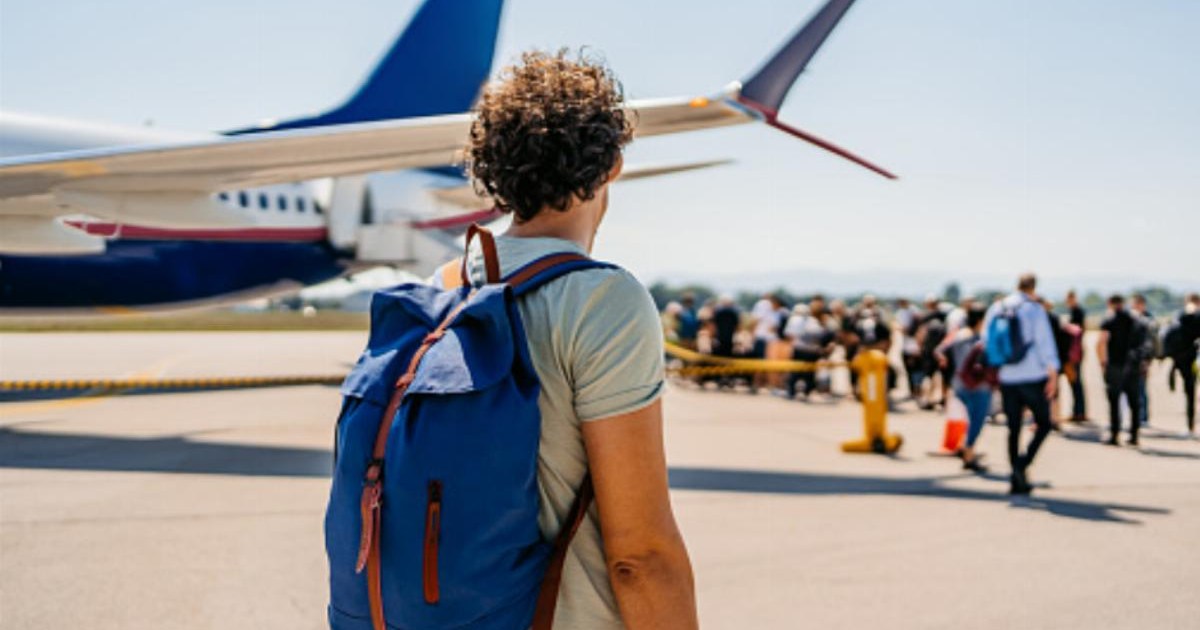
The UK has a brand-new airline, but good luck buying a ticket.
Ascend Airways won’t sell seats directly to passengers – instead, it operates behind the scenes.
As a short-term supplier of fully-crewed planes, Ascend Airways specialises in ‘wet leasing’, also known as ACMI (Aircraft, Crew, Maintenance and Insurance). This means their customers aren’t passengers, but other airlines.
Ascend officially launched in April, with its first-ever commercial flight at Southend Airport.
Dubbed ‘white-tails’ due to their lack of branding, these ‘wet lease’ aircraft are designed for other airlines that need an extra boost and to cover any gaps left by technical faults or high demand.
While the process isn’t new, emerging in the 1990s, it has grown in demand recently due to the surge in air travel.

Although new, Ascend Airways is part of the Avia Solutions Group family, the world’s largest ACMI provider, based in Dublin – and includes Latvia-based SmartLynx which calls itself the ‘Uber of aviation’, and Lithuanian Avion Express.
But, how exactly does it work?
What is wet leasing?
Rhys Jones, aviation editor at headforpoints.com, told Metro: ‘Wet leasing is a common practice in aviation where airlines effectively “rent” someone else’s aircraft to fly for them.
‘Unlike a “dry” lease, which covers just the aircraft, a wet lease comes with pilots and cabin crew to operate the plane. This means they can often be dropped into services at short notice as airlines do not have to train or retrain crew to operate.’

Passengers are not able to book onto these aircraft directly as wet lessors do not usually run commercial, bookable services, catering to the airlines directly instead.
Rhys says: ‘There are a number of companies that specialise in wet-leased aircraft including, in the UK, Titan Airways.
‘Unlike a conventional airlines with scheduled departures and route network, Titan Airways exists simply to operate services for other airlines and special charter flights.
‘As a result, you won’t find their flights available to book online or in flight search engines. Some airlines wet lease for others, such as Finnair, for Qatar Airways or Qantas.’
Ascend Airways, the UK’s newest white-tail airline, is used by TUI when the airlines ‘needs a helping hand when we need a few extra planes to take off from London Gatwick Airport’.
What can customers expect?
Rhys explained that airlines rely on wet-leased aircraft when they do not have enough aircraft or staff on their own.
‘As a passenger, you may not know you are on a wet-leased aircraft until you step on the plane, as these flights operate as part of an airline’s normal operations, with the same flight number as one operated by an airline’s own aircraft,’ Rhys noted.

Airlines try and keep service as close to their own as possible. However, Rhys says an easy way to spot a wet-leased service is that it will not have the airline’s branding on the tail, and the crew will be wearing different uniforms.’
‘Whilst the interior cabin configuration is different, airlines will often try and load the same standard meal service they offer to all customers,’ Rhys says.
The only downside, he notes, comes to consistency. ‘Whilst short-haul aircraft are pretty standardised (one airline’s 3-2-3 seating is much like the next) it’s a different story on long haul where you might expect a particular seat or cabin environment.’
According to its website, Ascend Airways ‘can provide a buy-on-board service, standard economy class catering or arrange a bespoke, first-class catering and cabin service with an open bar, depending on customer objectives and requirements.
‘We are also able to brand our aircraft and interiors to produce the “wow” factor for your guests.’
Why is there a demand for wet leasing?
Since the pandemic, the demand for wet-leased aircraft has grown as airlines have struggled with capacity, Rhys explains.
He notes: ‘During Covid, many airlines retired significant portions of their fleet and laid off staff; when demand for travel bounced back, they could not keep up and resorted to wet leasing to fill in the gaps of their operation.
‘British Airways, for example, had a number of wet lease agreements last summer, including with Finnair, Air Belgium, Danish Air Transport, Avion and Titan Airways.’
In a post-pandemic world, aircraft leasing isn’t expected to slow down. The global aircraft leasing market is projected to grow from $183.23 billion in 2024 to $401.67 billion by 2032, according to a Fortune Business Insights report.
Do you have a story to share?
Get in touch by emailing MetroLifestyleTeam@Metro.co.uk.
MORE: Ryanair and easyJet among airlines fined £150,000,000 for ‘abusive’ baggage fees
MORE: Full list of UK train station closures and disruptions over Christmas 2024
MORE: This cosy London cafe has been ‘ruined’ by tourists — and locals are furious

